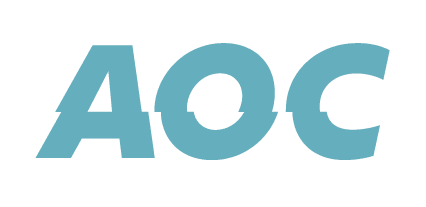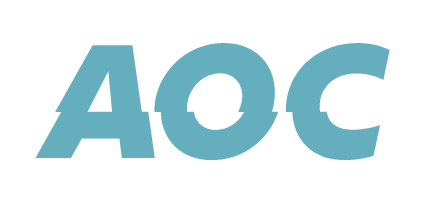Missed Margin, Miscommunication, and Management Gaps
Most agencies don’t realise how much they’re losing by not focussing operations, mostly because the loss isn’t immediately obvious. You’re creating good work and there’s a buzz in the studio. On the surface, it all looks good, but at the end of the year, the numbers just don’t add up. You smashed through all your revenue targets, but the margins just aren’t there.
That’s the hidden cost of not being operationally focussed. And in fast-moving markets, it’s one of the biggest risks to long-term agency health and an almost certain blocker to growth.
It’s a common theme across the industry, in both the big networks and with the leaders I talk to; revenue looks stable, but year-on-year, margins are dwindling. It’s the start of the spiral; lower margins mean less retained earnings, cashflow takes a hit. Then, before you know it, you’re in decline and fighting to keep your head above water.
Teams Are Misaligned
Without a clear operational strategy, teams end up working in isolation. Client servicing doesn’t know that the creative team is overloaded, project managers are firefighting to meet deadlines they didn’t help set and the leadership team has no real visibility into what’s happening day-to-day. Nothing connects consistently from pipeline to delivery.
Your team are regularly in the office late into the evenings trying to wrap up a task, your overtime bill is running away from you and eventually they start to burn out and looking for the door.
Having operational strategies creates alignment, joining the dots across departments, automating systems, and makes sure everyone is pulling in the same direction with the right information, not sitting in silos. It’s something that the best agencies have been doing for years, but many still neglect it, hoping that the work will pull them through.
Planning is Reactive
I’ve lost count of how many agencies I’ve spoken to who tell me that they can’t plan resourcing in advance. “The plan we have on Friday afternoon has changed by Monday morning,”“We have to give our clients flexibility, they always have last minute requests.” The reasons are endless, but there’s a fine line between being flexible and letting your clients run your business.
In too many agencies, planning is based on gut feel and last-minute conversations. The truth is that working like this means that you’re not in control, you’re being reactive, operating tactically. Every agency I’ve spoken to who works like this has a list of reasons why they can’t do it. The reality is, these agencies can’t plan their future and any growth they achieve is often, as a result of luck.
Picture the scenario where you’ve planned ahead. You have foresight into the next 4 weeks of studio capacity, 3 months of new business pipeline, your client service team aren’t just responding to client requests, they’re working with the client to plan their next quarter. Now, you’re working strategically. You’re ready to be agile, ready to help clients when something urgent comes up, not reacting to a lack of planning.
Client Experience Starts to Slip
Even if the work is good, a lack of process can be the quickest way to kill a client’s confidence. And when clients don’t trust the process, they start managing the agency themselves, which is the fastest way to fall from partner to vendor.
Strong ops builds predictability into delivery, it enables teams to be proactive, communicative, and clear. And it helps agencies create the kind of experience that clients want to buy again and again, and that doesn’t just mean saying yes at every opportunity.
It could be as simple as your internal approval process. One agency I worked at early in my career had a process whereby every piece of work, big or small that left the agency went through at least five sets of hands before it got to client. This meant the Creative, Designer or Artworker who worked on it, the Creative Director, The Project or Account Manager looking after the work, the Account Director responsible for the account and finally someone neutral to review any copy for mistakes.
Only once all these people had signed off on the work was it able to be sent to the client. I can personally only remember two times that work ever had mistakes found after it had been sent to client. Yes, it took time to get this done, sometimes it could be 10-15 minutes for a small job, but big jobs like brochures could take days to review. But it was built into the process and clients knew that the work they were getting wasn’t going to be littered with mistakes. It built trust.
People Burn Out
The pressure of not being ops focussed doesn’t just impact clients. In a reactive environment, pressure builds and teams are constantly playing catch up, patching over cracks, or working late to meet timelines that were never realistic. That pressure turns into stress. That stress turns into mistakes. And eventually, it leads to burnout and churn.
By creating repeatable ways of working, it gives structure to chaos and it makes sure that success doesn’t come at the expense of your team’s wellbeing. Long gone are the days where you earned the proverbial badge of honour for working 60+ hour weeks.
Looking at the 2025 BenchPress report, 51% of agencies said changes to the team working on a client was the biggest cause of client dissatisfaction, highlighting just how important staff retention is to ensuring longer client relationships, so managing workloads should be a priority for all agencies.
Leadership Stuck in the Day-to-Day
Without operational structure, leadership teams spend more time managing delivery than growing the business. They're pulled into delivery problems, helping to chase invoices or review scopes, deep in the weeds instead of driving strategically. And worse, they don’t have the right data to make confident decisions, can’t clearly see where margin is being lost, which clients are underperforming, or if the team actually has everything they need to deliver the next quarter.
Operations gives you that clarity. It provides the intelligence to move from reactive decisions to strategic leadership.
Fixing the Leaks Before They Sink the Ship
Every agency has inefficiencies, the difference is whether they stay hidden, or whether you choose to fix them. It limits your profitability, your ability to scale. And it limits the experience for both your clients and your team.
The sooner you bring operational focus into the business, whether through a full-time hire, a fractional partner, or a strategic audit, the sooner you start building an agency that’s sustainable, scalable, and set up for long-term success.

